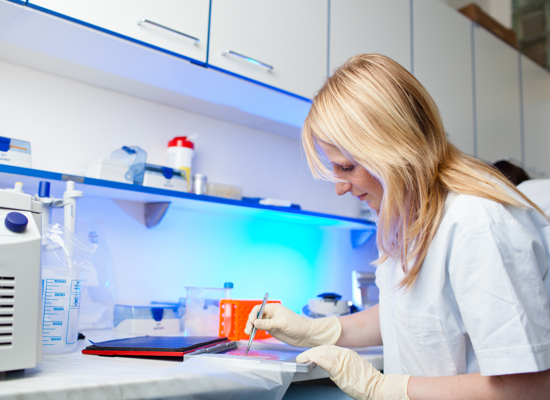What is experimental treatment?
Experimental treatment refers to treatment for which the efficacy and safety are not yet adequately documented. They are therefore not part of regular treatment provision. Even if treatment has had a good effect in individual patients, the treatment may still be considered experimental.
Experimental treatment may, for example, be given in the form of:
- surgical procedures
- the use of medical devices
- drug therapy
Experimental drug therapy may entail the use of drugs that have not been authorised. This could also include the use of drugs in areas other than those for which they have been authorised (off-label use).
Experimental treatment with medical devices may entail the use of devices that are not CE-marked (standard.no) or using devices for purposes other than the purpose for which they have been CE marked.
Who can get experimental treatment?
There is no entitlement to experimental treatment. Healthcare professionals and the health service will carry out an individual assessment and decide what healthcare to offer you. The healthcare you are offered must be safe.
You need to provide consent for experimental treatment. Consent must be informed. This means that you must receive adequate information about your health condition and about the treatment. You should be given such information before providing consent.
Your consent will be recorded in your medical records.
An expert panel has been established to provide people with serious life-shortening diseases with another opportunity to consider treatment options.
Clinical trials
When experimental treatment is given as part of a clinical trial, the efficacy and safety will be documented in a systematic manner.
Read more about what clinical trials are and the terms and conditions and rights that apply:
What are clinical trials?
Clinical trials, or experimental treatments, refer to research into the efficacy of new pharmaceuticals or treatment methods and whether the side effects are acceptable.

Clinical trials – Terms and participant rights
If you participate in a clinical trial in Norway, you have the right to withdraw at any time, be informed of any changes in the trial, and more.
Illustration: Viktor Cap / Mostphotos
You can also read more about clinical trials in the National Action Plan for Clinical Trials (2021-2025) (pdf). Here, one of the aims is to provide patients with more opportunities to participate in clinical trials.
Requirements concerning information about experimental treatment
There may be considerable uncertainty linked to the efficacy and safety of experimental treatment. There are therefore strict requirements concerning the information you must be given. It is important that you receive adequate information so that you can make an informed choice.
The information should be adapted for you. It is important that you understand what is being said and that you ask if anything is unclear.
You will learn:
- that the treatment is experimental and that there is uncertainty associated with the treatment.
- what you need to understand the experimental treatment.
- about possible effects and safety.
- about other treatment options.
During treatment, you will be given information about any changes or other factors that may affect whether or not you wish to continue receiving treatment. You will then be asked whether your consent still stands.
Your medical records should clearly state what information you have received about the experimental treatment. Information should also be recorded about any changes during treatment and that you have consented to such changes.
Safety requirement
An offer of experimental treatment must be safe. Attending healthcare professionals are required to carry out a thorough review of the available knowledge. They should also consider the efficacy and safety of the treatment.
Before you are offered experimental treatment as part of or outside of clinical trials, healthcare professionals will carry out a safety assessment. The following should be considered:
- Are there any relevant clinical studies?
- Are there any alternative treatments that are well documented?
- How safe is the treatment?
- How uncertain is the efficacy of the treatment?
- If there are alternative treatment methods available, are there any factors relating to you to indicate that the experimental treatment will be more effective, less stressful or, for other reasons, the best option for you?
- If there are no other treatment options, what would be the consequences of not offering you the experimental treatment?
- What follow-up and management would you receive?
Experimental treatment should be free of charge
You will not pay for experimental treatment offered by the public health service. This also applies to experimental treatment abroad, which may be offered to individual patients with rare diseases in special cases.
You need to pay for experimental treatment at a private hospital yourself.